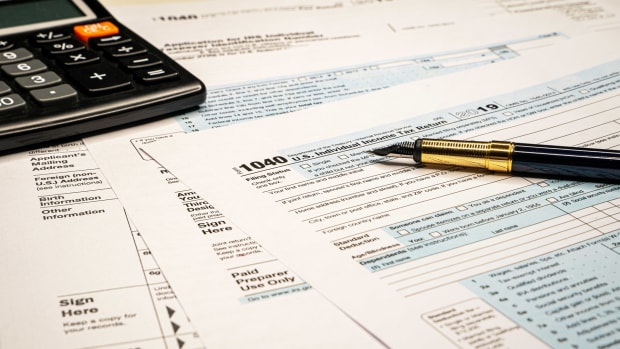
During an already-stressful tax season, few words can bring greater fear into the hearts of filers confused by the nuances of the Internal Revenue Service (IRS) than "audit."
While an audit was recently estimated to occur for 4.1 out every 1,000 returns, the fear of being the one singled out and caught inadvertently doing something wrong is extremely common — a recent Bankrate survey found that 69% of filers are worried about some kind of issue related to their tax return this year.
DON'T MISS: Be Careful Accepting Tax ‘Help,’ Warns IRS
In 2023, the IRS also expects to use the $80 billion in new federal funding passed as part of the Inflation Reduction Act to increase its audits of the country's corporations, complex businesses and wealthiest residents.

The $80B In Federal Funding Will Go Toward More Audits Of The Rich, IRS Says
In a 150-page report filed to the U.S. Treasury Department on April 6, the IRS said that it plans to bring audits of those groups back to what they were a decade ago — the last available data from the IRS shows that just 0.4% of those earning above $500,000 were audited in 2019 while that number was at 4.5% in 2011.
This change will not, the agency stresses, raise the audit rates for or affect those earning below $400,000.
"In compliance initiatives, the IRS will ensure that the agency follows Treasury Secretary Yellen's directive not to raise audit rates above historical levels for households making less than $400,000," the government agency said.
The outlined plan follows long-term political pressure to prioritize oversight of the wealthy rather than random audits that strike fears in the hearts of Americans struggling to get by.
Data compiled by TRAC, a nonpartisan data research center affiliated with Syracuse University, shows the number of revenue agent audits of people making more than $1 million fell from 28,260 in 2016 to 7,108 in 2020.
During his February 2023 State of the Union address, President Joseph Biden called the current tax system "not fair" for allowing situations in which a "billionaire [may be] paying a lower tax rate than a schoolteacher or a firefighter."
Here's What The Audit Increase Means For The Average Taxpayers
Biden's nominee for IRS Commissioner, Danny Werfel, vowed not to increase taxes or audit rates for those earning below $400,000 during his recent senate confirmation hearing.
"Through both service and technology enhancements, the experience of the future will look and feel much different from the IRS of today," Werfel said in a statement. "This plan charts the course forward for the IRS and tax administration."
Other promises made in the report to the Treasury Department include streamlining certain filing processes — there is still a pandemic-related backlog of more than 2.17 million unprocessed returns — by improving "customer service activities, putting an end to long wait times on the phone, adding capacity to the in-person taxpayer assistance centers around the country, and providing new online tools."
"The plan is a bold look at what the future can look like for taxpayers and the IRS," Werfel said.
On the lower-earner level, the tax season is expected to be even less pleasant than usual this year — amid the expiration of a number of pandemic-related credits and deductions, the average filer receiving money will get $326 less than in 2022.
The same Bankrate numbers also found that, on top of concerns of getting a smaller refund this year, 34% expecting to get one also worry that whatever they get will not stretch as far due to inflation.







